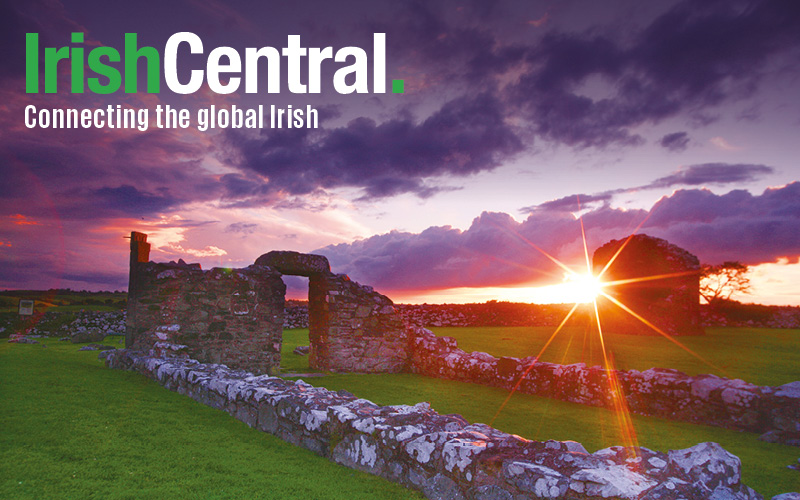“Go back to Cuba!” was a refrain shouted at me for half a lifetime.
“I wish!” was my silent reply, as I jacked the volume on my amplifier to lay a little aural hurt on the heckler.
Truth was, though, I’d never been to Cuba as I recently watched Havana merge with the shimmering Caribbean on my Jetblue descent.
I had gone on an impulse; besides, the price has been right ever since President Trump’s hissy fit restriction on US travel last November.
I’ve always felt strong parallels between Ireland and Cuba, not the least is that both island countries have fraught relationships with neighboring empires.
Right from its first European settlement in the 16th Century Cuba has had many Irish connections – mostly courtesy of Wild Geese regiments in the Spanish army.
In fact, the emblematic El Morro Lighthouse that dominates Havana’s harbor was once called O’Donnell’s Lighthouse - built by a relative of Red Hugh’s.
I had another reason for going – in the summer of 1989 I had played with the Brooklyn performance poet, Copernicus, on a chaotic tour of Eastern Europe and the USSR.
The Berlin Wall came down some months later and we may have knocked a few chinks in it, particularly in Prague where unknown to us the dissident promoters used our shambolic appearance to challenge the government.
When we voiced discomfort at the idea of playing the packed national ice hockey stadium with militia rifles aimed at the stage, we were reassured that “zey will not keel us all.”
The Eastern Bloc is barely a repressive memory now but Cuba is still celebrating its Revolución.
And with good reason: whereas the Eastern European communist countries were drab, dreary and oppressive, Cuba is a vivacious society, proud of its achievements and determined to plough its own furrow.
Still, you can feel change in the wind and it’s always exciting to be present as the hammer hits the anvil.
Free universal health care and education have invigorated this largest of the Caribbean islands, and life expectancy has rocketed from just over 60 when Fidel Castro took control in 1959 to almost 80, as we speak.
Lest I’m painting too pretty a picture there are major problems: a lack of housing, too much bureaucracy, and a continuing failure to develop agriculture necessitating much importation of food.
And there are many Cubans, no doubt, who would like a crack at the capitalist society they have been warned about since the cradle.
The real achievement though is that Cuba is a post-racial society. Black, white, and all shades in-between mix easily and on an equal footing. Since everyone receives the same education, there is a social fluidity that makes you painfully aware of the lack of integration back home.
While the US blockade - in effect since 1960 - does hold Cuba back economically it seems to have little effect on the spirit of the people.
They’ve survived worse, particularly the “special period” during the 1990’s when the USSR collapsed thereby eliminating favorable trade deals and subsidies. Food was scarce for many years and public transport rare.
The blockade, however, has had some positive effects, particularly on Cuba’s lifeblood: music.
Afro-Cuban Jazz is thriving – the integrated bands, left to their own devices, have syncretized their distinct culture and history with the universal jazz tradition.
At times you feel the whole country is grooving to the addictive 1-2, 1-2-3 Afro-Cuban syncopated beat.
But all cultures are equally valued. My friend and guide, Enrique Núnez, took me to meet Rafael Fernández Moya, the local expert on Cuban-Irish history.
This former diplomat now works with elementary school children explaining Irish culture and its effect on Cuba.
The vibrant elementary school Pioneers, with their distinctive red neckerchiefs, were bubbling with questions about the life of a New York Irish musician.
Barely out of Pre-K many are already invested in Ireland courtesy of their hero, Che Guevara Lynch.
You should visit Cuba, go with an open mind and savor the experience. Your airline company will advise you on how to get a visa.
Raúl Castro has just retired ending a dynasty. New president, Miguel Díaz-Canel has the unenviable task of maintaining Cuba's vaunted free universal health care and education systems while encouraging foreign investment and its tendency to promote social inequality.
One way or another change is inevitable and on the way but La Revolución is strong and there’s a rebel Irish tradition close to the heart of it.
---
Larry Kirwan was the leader of Black 47 for 25 years. He is also a playwright, novelist, and a columnist for The Irish Echo www.irishecho.com
He is the host of Celtic Crush on SiriusXM Satellite Radio and President of Irish American Writers & Artists. He can be reached at [email protected] and www.black47.com
This article was submitted to the IrishCentral contributors network by a member of the global Irish community. To become an IrishCentral contributor click here.




Comments